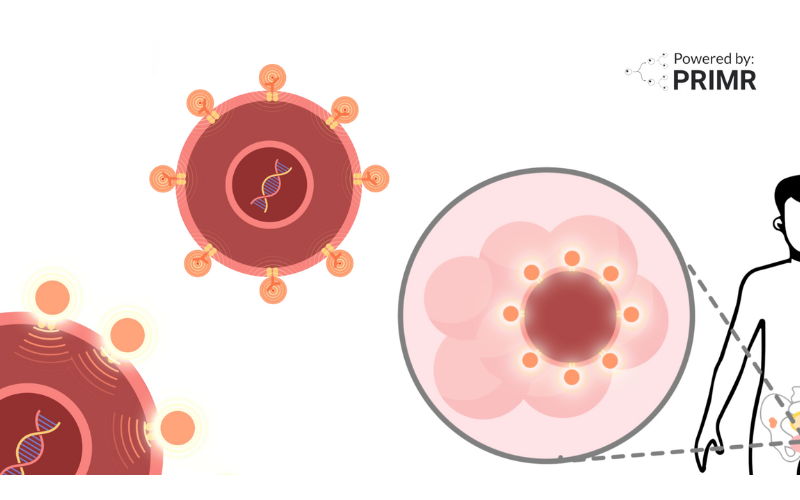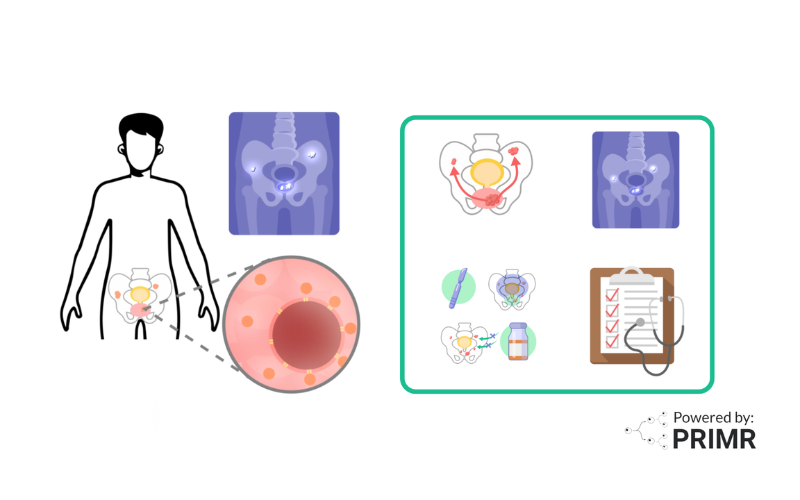Breakthrough Treatment for Metastatic Cervical Cancer: The innovaTV 301 Trial

By: David Grew MD MPH
“The innovaTV 301 trial marks a pivotal moment in the fight against recurrent or metastatic cervical cancer."
∗ ∗ ∗
Few things are more frustrating for oncologists than to have a cure within reach, only to have it slip from our fingertips. Devastating for the patient and family. This is particularly relevant in cervical cancer, which ranks among both the most common and most deadly cancers in women worldwide. When cervical cancer grows back or spreads to other parts of the body (metastasis), standard treatment options have produced underwhelming results. Typically patients are offered chemotherapy with response rates in the single digits percentages. That’s why, when I saw the results of the innovaTV 301 study, my head turned. It’s no slam dunk, but the new drug Tivdak beat chemo in terms of response rates, progression free survival and side effects. So in this blog (and the accompanying video) we’ll review the top line results of the innovaTV 301 trial for patients and families affected by recurrent or metastatic cervical cancer.
Understanding the innovaTV 301 Trial
The innovaTV 301 trial was a global clinical study designed to assess the effectiveness of a novel treatment called tisotumab vedotin (also known as Tivdak) compared to standard chemotherapy in patients with recurrent or metastatic cervical cancer. Cervical cancer, which originates in the cervix, can be deadly when it spreads (metastatic) or returns after initial treatment (recurrent). The trial aimed to provide a clearer understanding of how tisotumab vedotin, a targeted therapy, could potentially improve survival rates and quality of life for these patients.
Key Findings from the innovaTV 301 Trial
1. Significant Reduction in Risk of Death
- Survival Benefits: The trial demonstrated that tisotumab vedotin led to a 30% reduction in the risk of death compared to standard chemotherapy. The median overall survival was notably higher at 11.5 months for the tisotumab vedotin group, compared to 9.5 months for those receiving chemotherapy.
- Longer-Term Survival: After 12 months, nearly half (48.7%) of the patients treated with tisotumab vedotin were still alive, a significant improvement over the 35.3% survival rate in the chemotherapy group.
2. Better Disease Control
- Progression-Free Survival: Tisotumab vedotin also showed superior results in controlling the disease. The median progression-free survival, which measures the time a patient lives without cancer worsening, was 4.2 months with tisotumab vedotin, compared to just 2.9 months with chemotherapy—a 33% reduction in the risk of disease progression.
- Tumor Response: The response rate, indicating the percentage of patients whose tumors shrank, was significantly higher with tisotumab vedotin (17.8%) compared to chemotherapy (5.2%).
3. Manageable Side Effects
- Lower Severity of Side Effects: One of the standout findings of the innovaTV 301 trial was the relatively lower incidence of severe side effects (grade 3 or higher) in patients treated with tisotumab vedotin (29.2%) compared to those undergoing chemotherapy (45.2%).
- Common Side Effects: The most common severe side effects associated with tisotumab vedotin included peripheral neuropathy, eye problems, and bleeding, all of which were generally manageable.
Implications for Cervical Cancer Treatment
The results from the innovaTV 301 trial have significantly impacted the treatment landscape for recurrent or metastatic cervical cancer. The data not only led to the accelerated FDA approval of tisotumab vedotin in 2021 but also culminated in full FDA approval in 2024. This drug now offers a new, effective treatment option that can potentially extend life and improve outcomes for patients who previously had limited alternatives.
∗ ∗ ∗
The innovaTV 301 trial marks a pivotal moment in the fight against recurrent or metastatic cervical cancer. By providing a new treatment option that improves survival and reduces the severity of side effects, it offers renewed hope to patients facing this challenging condition. As we continue to explore and refine targeted therapies like tisotumab vedotin, the future looks increasingly hopeful for those diagnosed with cervical cancer.
To learn more about the innovaTV 301 trial and its impact on cervical cancer treatment, watch the video we made here.
Hire PRIMR to create custom video content for your clinical trial or medical product today.
FAQs:
What is tisotumab vedotin (tivdak), and how does it work as a targeted therapy?
Tisotumab vedotin is an antibody-drug conjugate (ADC) designed to target cancer cells. It works by combining a monoclonal antibody that specifically binds to a protein called tissue factor (TF) on the surface of cancer cells with a potent cytotoxic agent. Once the drug binds to the TF on cancer cells, it is internalized, and the cytotoxic agent is released inside the cell, leading to cell death. This targeted approach helps to minimize damage to healthy cells and reduces the severity of side effects compared to traditional chemotherapy.
What are the long-term outcomes for patients treated with Tivdak beyond the 12-month mark?
While the innovaTV 301 trial reported a 48.7% survival rate at 12 months for patients treated with tisotumab vedotin, long-term outcomes beyond this period are still being studied. Data on survival rates and quality of life over more extended periods are necessary to fully understand the long-term benefits and potential risks associated with tisotumab vedotin. Ongoing studies and real-world data will help provide more comprehensive insights into the long-term efficacy and safety of this treatment.
Are there any ongoing trials or future studies planned to further explore the use of tisotumab vedotin in other types of cancer?
Yes, ongoing clinical trials and studies are exploring the use of tisotumab vedotin in other types of cancers beyond cervical cancer. Researchers are investigating its efficacy in treating other solid tumors, such as ovarian and lung cancers, where tissue factor is also expressed. These studies aim to determine whether tisotumab vedotin can provide similar benefits in other cancer types and to explore its use in combination with other therapies to enhance its effectiveness.
Other Posts

Nuclear Medicine: PSMA Treatment Explained from a Doctor’s Perspective

Nuclear Medicine: PSMA Imaging and Its Impact on Prostate Cancer Care
